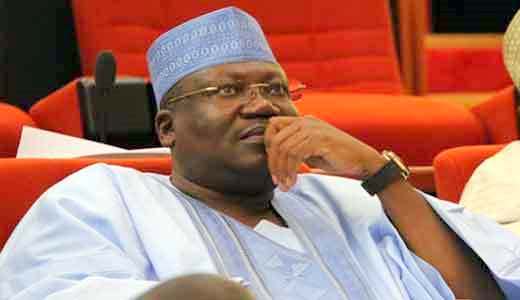By Josephine Uzorh
Senate President Ahmed Lawan is a geographer whose discipline has reflected in his legislative work.
In 2009, he raised the alarm that farmers and herders clashes would remain unabated if the National Assembly did not intervene in rejecting the proposed Kafin Zaki Dam.
The proposed Kafin Zaki Dam is supposed to be a reservoir that would draw its supply from the Jama’are River, the main water source for herders, farmers and fishermen in the North East.
Lawan said the Jama’are river had already shrunk as a result of feeding two dams. He said adding a third one would escalate the level of poverty in the area, increased desertification, force people into migration and eventually lead to frequent clashes between farmers and herdsmen.
In 2018, the renowned peace advocacy centre, the Crisis Group, estimated that in the first six months of 2018, 1,300 people died as a result of clashes between farmers and herders.
The herders and farmers clashes are blamed on the desertification sweeping the North East, forcing the herders to migrate to North Central where their cattle graze on the farmlands of locals.
Lawan has a Bachelor’s degree in geography from the University of Maiduguri. He obtained a master’s degree and a doctorate degree in remote sensing from Ahmadu Bello University and the Cranfield University, UK. He has brought this knowledge to bear in his legislative activities.
In 2009, he proposed the Desertification Control Commission Bill which he said would forestall the loss of arable lands to the desert, and prevent migration arising from it.
Lawan started his lawmaking career in the House of Representatives in 1999, representing Yobe North under the platform of the All Nigeria Peoples Party (ANPP).
In 2007, he contested and won a Senate seat, still on the platform of the ANPP until the 2014 merger that produced the All Progressives Congress (APC).
As a member of the APC, he was the preferred choice of his party for the Senate presidency in 2015. He was however outwitted by Bukola Saraki for the position.
Saraki’s loyalists had gathered at the National Assembly complex while about 50 APC members were at the International Conference Centre waiting for President Muhammadu Buhari who had allegedly invited them to a peace meeting. Before they could rush down to the National Assembly complex, the voting was completed and Saraki became the Senate president of the 8th National Assembly.
That was not the only defeat Lawan suffered. He was nominated by his party as Senate majority leader. He lost the position to Ali Ndume, two weeks after the first defeat.
But in 2017 when Ndume fell out with Saraki, Lawan became the Senate Leader while Ali Ndume got a six months suspension after he was removed from the post.
In the 9th Assembly, Lawan was named as his party’s preferred candidate. This time, he clinched the job after defeating Ndume by 79 to 28 votes. This was after Danjuma Goje met with President Buhari and withdrew from the race a week before the election.















